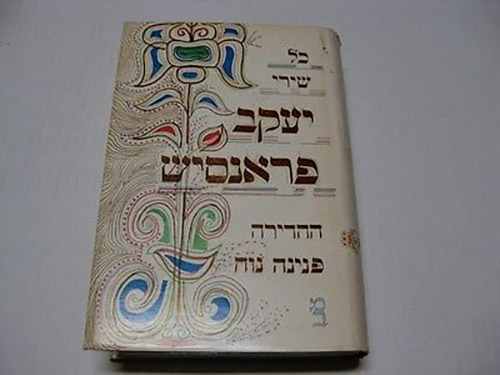
Part I
Kabbalah or Lurianic Kabbalah—as taught and popularized by the Arizal—has an interesting and complicated history in Italy. By the 17th century, Lurianic Kabbalah had captured the imagination of large swathes of Jewish Europe and Asia. By the 18th century, a new movement—deeply inspired by Ari—called chasidism would arise in Eastern Europe and change the Jewish landscape forever.
The students of the Ari traveled to disseminate their master’s teachings and found especially fertile ground among the Jewish communities of Italy. But this newfound enthusiasm was not without its detractors.
Immanuel Frances was an Italian poet and rabbinical scholar, born in Mantua in 1618 and died at Leghorn (Livorno) sometime after 1703. He received his instruction from his elder brother Jacob among others. Both he and his brother Jacob were determined opponents of the followers of Shabtai Tzvi, against whom they argued in a volume of poems. Frances also opposed the Kabbalists in general. This did not endear him, to say the least, to most of the Italian rabbis of his time. He had the less-than-good fortune of being born in one of the most Kabbalah-friendly cities in Italy. His writings created so strong a feeling among the Kabbalistic rabbis of his hometown that they destroyed his brother’s published poems and forced him to flee the city. He wandered from place to place, settling finally in Leghorn (Livorno).
A collection of Jacob Frances’ poems were published in Israel by Mosad Bialik in 1969 as כל שירי יעקב פראנסיש.
The poems are eclectic, ranging from the sacred to the profane. See, for instance, his poem on the utility of jealousy:
בלי מצער קנאות אין ידידות
ותהיה אחרית חשק להכרית
והקנאה תעורר לב חשוקים
לאשי מוקדש הנה כגפרית
The famous 17th-century Amsterdam-born Sephardic Kabbalist (thought virulent opponent of Sabbateanism) Rabbi Moshe Zacut (also known by his acronym “Remez”) was a close friend and admirer of the brothers. He wrote a poem in honor of the simultaneous weddings of the Frances brothers to the orphaned sisters Hanna Grazia and Rachel Lumbroso (these types of weddings were commonplace at the time):
מנם לגוז מינם והתחתנו
הן הן בנות גילם משוש גילם
על כן לשגלם הכי נזמנו
על כן לפי תואר יפי תואר
הוד פעלן נזהר ובו נסמנו
I have been fascinated by the Frances brothers for a time now, as they were of a minority of European rabbis from that period who were actively opposed to the Kabbalah. Yet despite their hostility toward the discipline, it did not preclude them from being friends (even close friends) with some Kabbalists.
The 19th-century fiery Italian rabbi and scholar, Samuel David Luzzatto (better known by his acronym Shadal), however, couldn’t make sense of this and he went so far as to cast doubt on whether Zacut was indeed a Kabbalist. Shadal, usually a lucid thinker, reasoned that the Frances brothers couldn’t possibly be friends with a Kabbalist!
Shadal sometimes strikes me as naive. His lack of nuance in this case surprises me; was he not aware of the great esteem shown on the part of another (much more famous) 17th-century Italian anti-Kabbalist rabbi Yehuda Aryeh (Leone) Da Modena toward the prominent Italian Kabbalist Menahem Azarya of Fano (the latter was his sandek)? Even the Ari himself was treated by the former with the greatest respect.
I would note another unique thing about Rabbi Moshe Zacut. He writes that as a young man he went to study in a yeshiva in Posen (Poznan), then part of Poland. This was unusual, as Sephardim did not generally travel to study in Ashkenazic yeshivot. It is doubly interesting since there were two brothers named Zacut who were permanent residents of Posen at that time (there were also members of the Sephardic Zacut family who settled in Zamosc, Poland). These were, in all likelihood, cousins of Rabbi Moshe (and probably hosted him during his time there).
There were several other Sephardim and descendants of Sephardim who resided and flourished in this Polish/German city, including Rabbi Jacob Kalvari, who served as Rabbi Akiva Eiger’s assistant on the rabbinical court, but more on that a different time.
To be continued…
By Joel S. Davidi Weisberger
Joel S. Davidi Weisberger runs “Jewish History Channel,” a grassroots organization dedicated to the dissemination of Jewish history and culture. He is also pursuing Semicha at YCT while assisting at Cong. Beth Tefillah 452 Forest Ave in Paramus, NJ, where you can catch his dvar Torah weekly between Mincha and Maariv (this week at 4:10 p.m). He resides with his wife and son in Fair Lawn and would love to hear from you at yoelswe@yahoo.com.








